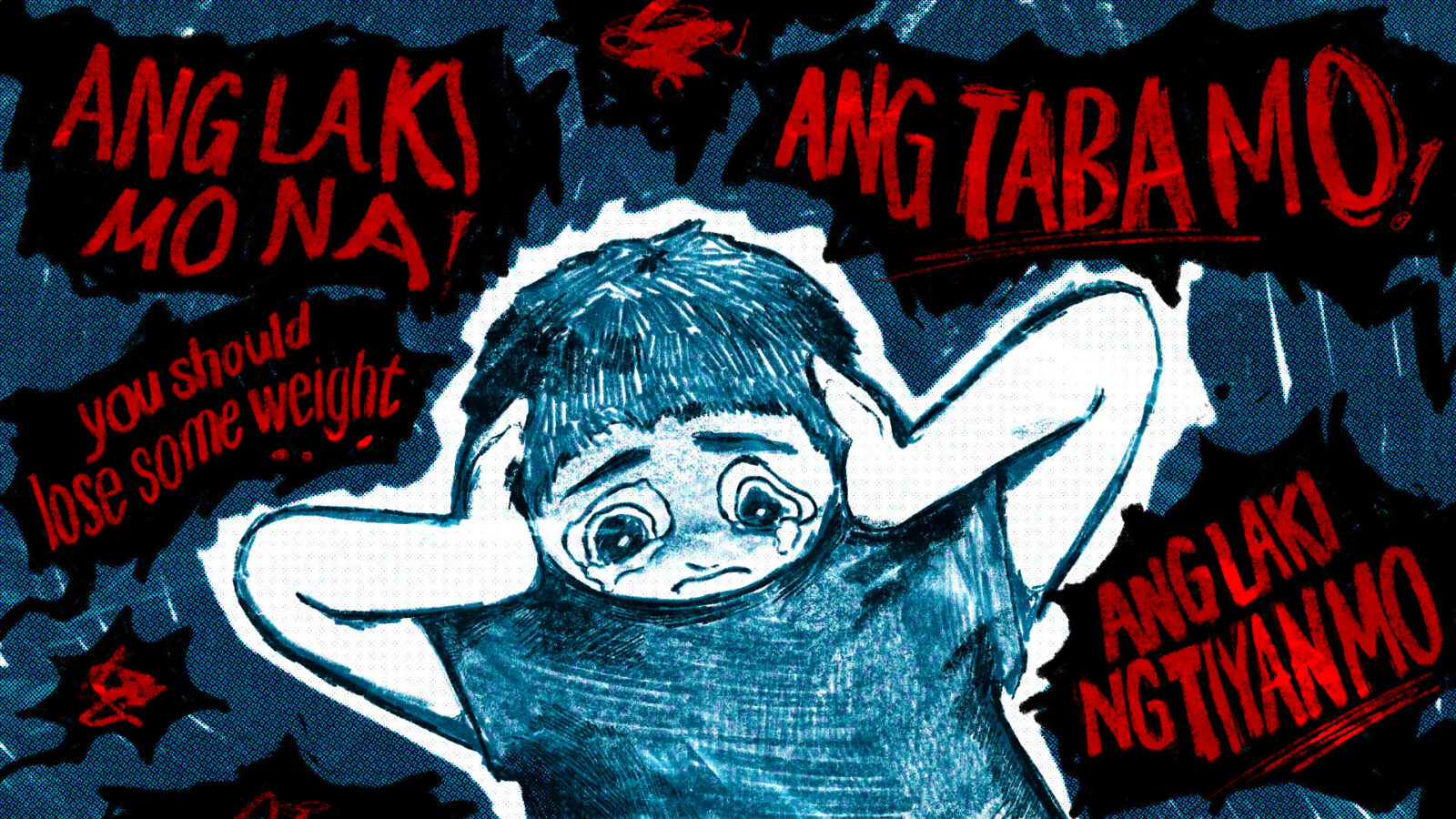Getting fat-shamed by family is an insult that cuts deep, even when they think it comes from a place of “love.”
Related: Moira Dela Torre Claps Back With Kindness At A Body-Shaming Basher
I love my family and I know they love me, but over the years, it has bothered me about how some members of the extended family would shame me about my weight disguised through comments that point out how big I am. And I know I’m not the only one who has dealt with this as studies have shown how body-shaming is prevalent in society. The weight stigma is real. It’s a global health problem that hits at the most personal of levels.
Yet, when I do bring up how I feel, I get shut down because they think that they’re just helping me or it’s just light teasing. If they really want to help me, then I hope they can listen to what I have to say, and maybe others who are going through the same experiences as me can find comfort that we aren’t alone in this struggle.
I KNOW ABOUT MY WEIGHT
Ever since I was a kid, I’ve known that I’ve always been a big boy. Medically, I land on the overweight scale, but in some of my family members, I may as well be a walking ball of fat. Yes, I know this is not an excuse to live unhealthily. But it always makes me feel uncomfortable whenever my weight is pointed out to me like that. I know I’m big, I see it in the mirror every day.
And I always find it off-putting that my weight seemingly is the first thing that enters a conversation or how they’ll find a way to bring the conversation to it or insert a side comment saying that my stomach is so big. To be put on the spot like that is embarrassing and even demeaning to who I am.
IT’S NOT MAKING ME FEEL BETTER
It goes without saying that getting body-shamed is a dehumanizing experience. It’s already bad enough I get self-conscious in public hoping to not look too big to others, but to have relatives put me down like that is a low that’s not easily forgotten.
What they think are comments that are meant to help me do the exact opposite. It makes me feel bad and brings me down to the point where I don’t feel inspired to attain the weight that they think is good for me. I resort to self-blame as my self-esteem goes down. When I get body-shamed, my first thought isn’t to hit the gym but to retreat.
THESE COMMENTS AFFECT RELATIONSHIPS
Can you imagine people who should be your supporters tearing you down with little comments that seemingly have no end? That’s the experience I’m starting to have with some of my relatives. How my body becomes the topic of conversation in nearly anything we do is beyond me. It’s reached a point where I dread talking to them because I do not want them to point out how big my stomach is or that I’m getting fatter.
Growing up shy and introverted, I’ve always had to battle my anxiety, and getting fat-shamed by family does nothing for my self-confidence. My worth should not be determined by my BMI.
GETTING FAT-SHAMED IS COUNTERPRODUCTIVE TO WHAT THEY WANT
The main defense of many relatives is that these comments are just their way of pointing out that we’re getting bigger. They want us to be healthy and better, and they think talking about our weight is the way to go. But that’s not how you do it. There is a lack of respect and dignity that can lead to lasting damage physically, mentally, and emotionally.
It’s already a struggle for many when it comes to dealing with their weight, fat-shaming makes the healing even harder. These comments are supposed to come from a place of love and concern, but they feel like attacks that do the exact opposite of what they want. FYI, insulting someone or putting them in uncomfortable situations is not how you want to help someone.
YOU CAN HELP IN OTHER WAYS
At the end of the day, I know that (most) families do this because they want to help me. It’s the right intentions, more or less, but the wrong execution. If they want to help me, there are better ways to do so. Firstly, you can talk about my health without using snide comments that just point out I’m getting bigger. Helping someone shouldn’t involve punching down. My body is not something for you to take shots at while I do nothing.
Second, don’t invalidate my feelings when I say that I’m feeling uncomfortable in a conversation. No, this is not my excuse to avoid important discussions but my way of setting my boundaries when I feel that the conversation is becoming one-sided. These are sensitive topics being discussed and require a sensitive approach, not side comments that compare my body to airplanes. Lastly, defend me in situations where I’m being put down. It would be everything to me if I felt that I was supported. Change begins at home as attitude shifts start in the family. So, let’s shift the conversation to more healthy outcomes.
Continue Reading: 6 Heart Evangelista Clapbacks To Use When Dealing With Body-shaming





